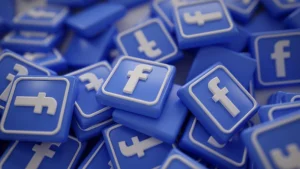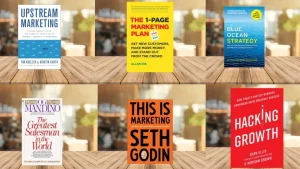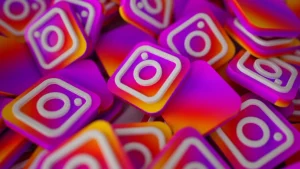Once you find yourself at a certain juncture, the first prepares you to enter the gigantic digital universe; the other one goes to a fast-paced social hub where discussions never stop. Which one are you going to choose? Definitely, in the world of online marketing, there is no need to choose between the two: digital marketing and social media marketing are often interchanged but by no means the same.
Before diving into digital marketing vs. social media marketing, let’s first acknowledge the broader comparison: digital marketing vs traditional marketing.
Digital marketing can be understood as an umbrella term for all marketing efforts made through the Internet, from digital ads to email campaigns and SEO, while social media marketing only uses platforms such as Facebook, Instagram, and LinkedIn. But why should you care? And how would you be able to wield them both to lay the foundations of your brand’s thriving online presence?
We will elaborate on what differentiates them, their unique benefits, and the ways you can use them together in a single strategy. This guide provides everything needed for business owners, marketing persons, or whoever is interested in establishing his/her authority in the digital domain.
What is Digital Marketing?
Digital Marketing is the art and science of selling goods, services, and brands through digital means. It can be viewed as a huge toolbox that includes products such as search engine optimization (SEO), email marketing, pay-per-click (PPC) advertising, and content marketing.
Digital marketing is very versatile; it can never be one-dimensional. It encompasses a wide range of strategies to meet consumers wherever they are browsing the Internet. For example, SEO helps catapult a website up the Google ladder, whereas email marketing nurtures and keeps the consumer in the conversation.
What is Social Media Marketing?
It’s like throwing a party and having an amazing good time with Instagram, Facebook, Twitter, or LinkedIn. Social media marketing centers around creating content meant to spark conversations, build communities, and drive engagement. Whereas digital marketing is expansive, social media marketing speaks most to the one-on-one connect-the-personability of interacting with one’s audience.
Catchy graphics, viral memes, and interactive polls will allow people to converse with your brand in real-time and build loyalty. A smart tweet or a heartwarming Instagram story can put a face to your brand, giving it perfect intimacy with those who follow it. Authenticity lies behind social media marketing, which has been softened into a tool for businesses to foster more sincere bonds with their audience.

Key Differences Between Digital and Social Media Marketing
The different kinds of digital marketing channels are SEO, PPC, email marketing, content marketing, and social media marketing. The last one mostly deals with social networking sites like Facebook, Instagram, LinkedIn, or TikTok.
Digital marketing crosses multiple channels in tracking down its target audience. Social media marketing might have those competitive edges of social interaction, viral time content, and community-building feelings, with more frequent refreshes and real-time interaction with audience members, while digital marketing may offer the multisourcing advantage.
Thus, it is to be highlighted that digital marketing is expected for long-term growth in brands, lead generation, or conversions using varied points of entry, while on the other side, social media marketing concentrates more on establishing brand awareness through involvement with interactive content or socially related interactions.
Pros and Cons of Digital Marketing
Digital Marketing is generally more comprehensive and encompasses social media marketing, but its advantages and disadvantages include:
Pros:
- Wider Reach: Digital marketing uses different platforms through which businesses can reach audiences via search engines, websites, email, and social media.
- Highly Measurable: Advanced analytical tools provide comprehensive insights into user behavior, campaign performance, and return on investment through which data-driven decisions can be made.
- Scalability and Automation: The business can automate marketing campaigns, optimize advertisements, and scale operations according to performance data.
- Long-Term Benefits: Search engine optimization and content marketing work for the long time to deliver sustainable results such that the businesses will generate consistent organic leads.
Cons:
- More Expensive Some online marketing methods are pay-per-click marketing and influencer marketing, which become more expensive as you use them.
- Steep Learning Curve SEO, PPC, analytics– you name it, getting the hang of these takes time, continuous learning, and eventually experience.
- Algorithm-Dependent Regularly changing algorithms by search engines and ad platforms can affect market performance significantly and require constant tweaking.
Pros and Cons of Social Media Marketing
Most people spend a lot of time on social media, from influencers to audiences who use social media like Instagram to pass the time. There are even audiences who are active on LinkedIn to expand their network and find work, so social media marketing can help you target a different type of audience.
Pros:
- The benefits of social media marketing include its low or no cost.
- As we mentioned, another benefit of social media is access to a very large audience with different goals.
- Awareness By being active on social media, you can increase audience awareness of your brand and strengthen your branding.
Cons:
- An Engagement-Heavy Process – Keeping the audience engaged requires frequent updates, maintaining an active response to comments, and creating original content.
- Reduced Organic Reach – With ever-changing algorithms, visibility is hindered, thus making it extremely hard to reach these audiences without paid promotions.
- Extremely Short Life of Contents – The lifespan of any posts is very limited, that is, only some time before they get vanish by the next.

Which One Is Better for Your Business?
Digital Marketing and social Media marketing, exist within a larger digital marketing ecosystem as one channel. Digital marketing could not be said to exist without its core facets such as SEM, PPC, or content marketing, which are involved in driving traffic and lead generation events. Social media marketing is thereby limited to the act of instrumentality employed in actions on social platforms but focuses on engagement measurement through applications or platforms and creating brand awareness.
The clear integration of social media marketing and digital marketing can serve to amplify efforts in both channels. Thus, social media marketing may distribute content, increase visibility, and engage an audience in real time, while digital marketing would provide a supporting foundation in the long term through organic traffic and paid advertisement.
Combining the two makes for an excellent marketing strategy. Thus, digital marketing builds credibility and the presence in search for the brand, while social media builds up customers’ trust in the community. Their combined powers led to robust brand awareness, conversions, and overall growth of businesses.
Conclusion
Digital activity interacts with social activity as they are both essential parts of a business marketing strategy. It has a wider scope that includes online techniques including but not limited to SEO, PPC, and email and content marketing among others for driving traffic when it comes to online marketing. However, social media marketing highly entertains the concept of engagement, brand awareness, and building a community on certain social platforms.
It has to be established in a way that not one sector will reject the other. Both social media and online advertisements come together by taking content into a real-time engagement of users: online advertisement would mean long-term visibility and leads through search engines and paid ads. They boost credibility for the branded company, reach the audience in the right way, and maximize conversions in an increasingly digital world.











